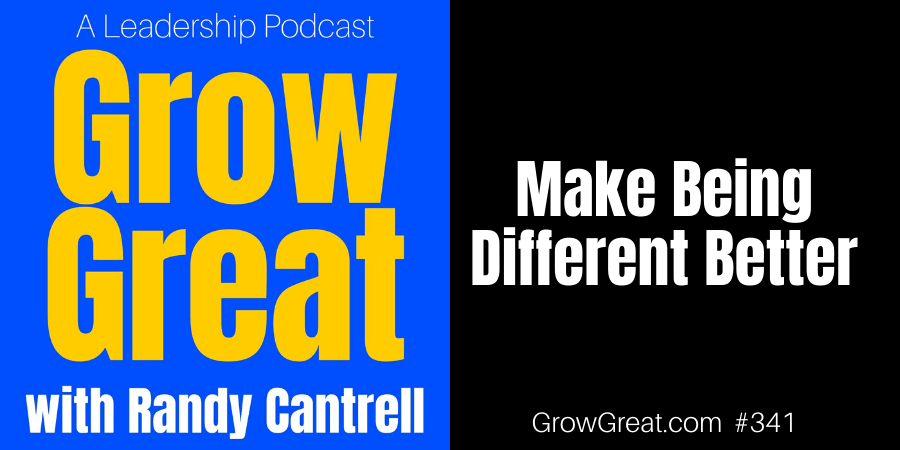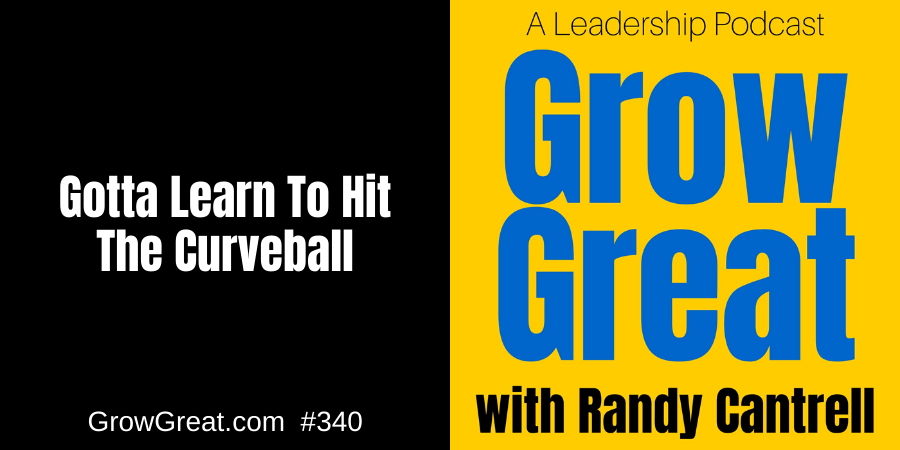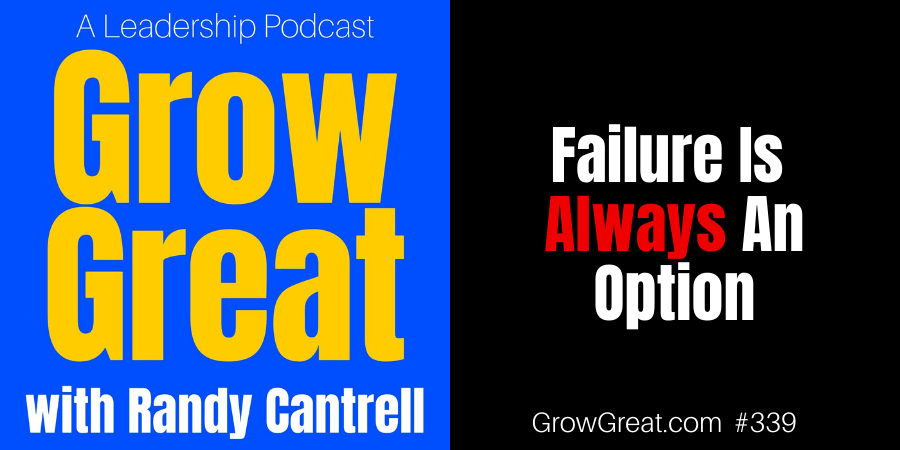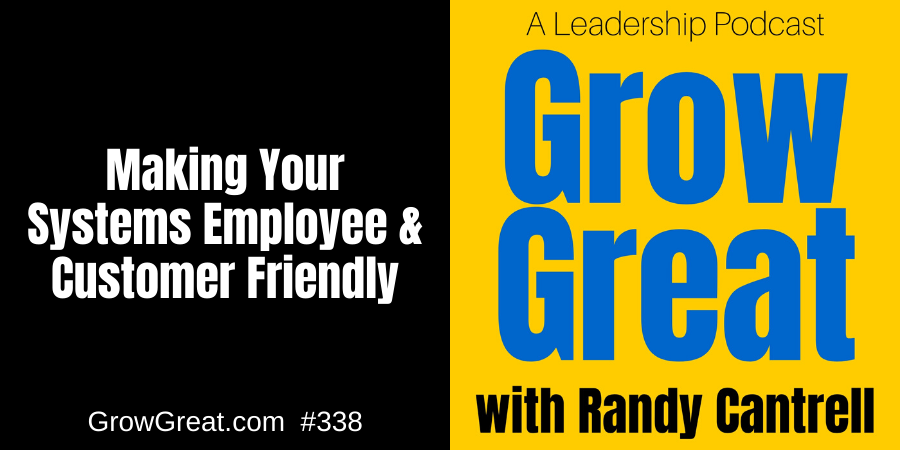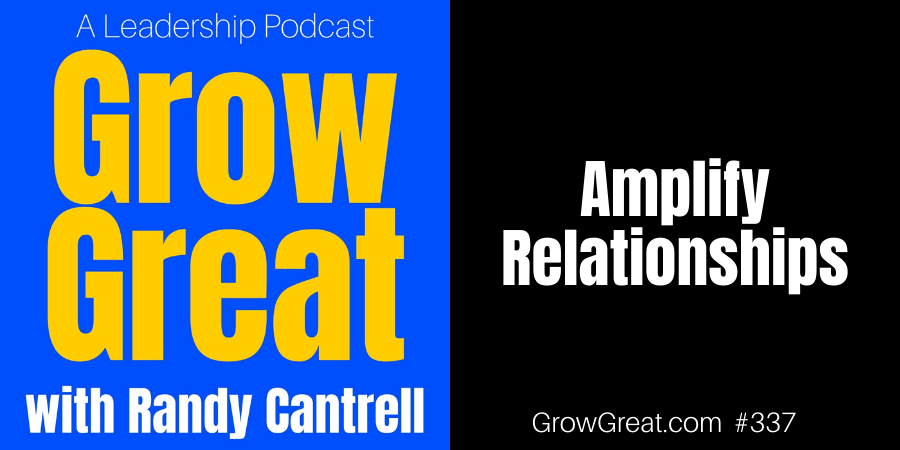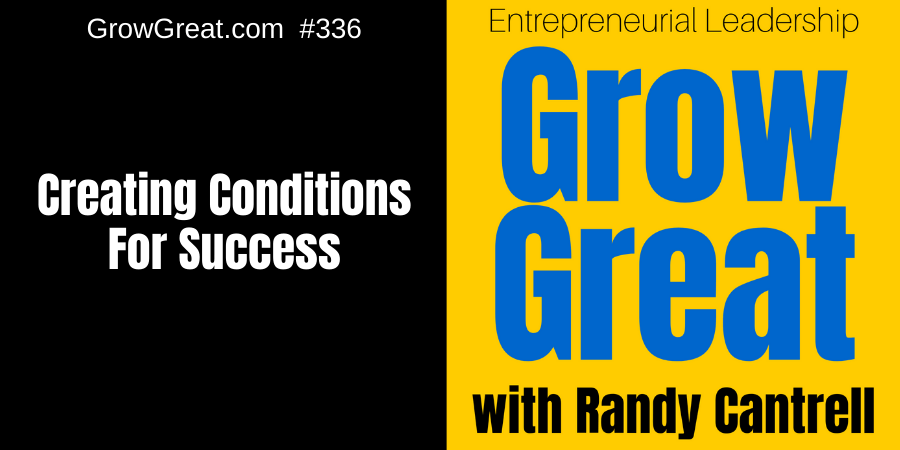Make Being Different Better (341)
Podcast: Play in new window | Download (Duration: 11:16 — 10.8MB)
Subscribe: Apple Podcasts | Spotify | RSS | More
Be different.
We mean, “Be different in a good way.”
One of the very first marketing and advertising lessons I learned was the power of zigging when everybody else was zagging. The point was simple, but not easy. You have to stand out from the crowd.
Separating yourself from the competition may be easier in the execution of your business, but it may be very difficult in attracting customers. I spent decades running retail organizations. Delivering extraordinary customer service has always been my passion. Establishing a culture willing and able to do that is vastly easier than convincing new customers that you’re distinct.
We have to figure out a way. A way to attract new customers. It’s the first leg of the business trifecta.
- Getting new customers
- Serving existing customers better
- Not going crazy in the process
It’s up near the top of the business challenges facing all of us. How can we stand apart and get the attention of the prospect so we can convert them into customers?
There’s no singular answer. “It depends” is the qualifying statement. It depends on the business you’re in. Not every business is solving the seemingly unsolvable problem customers experience. Not every business is leading the way with some technology advantage. Not every business has the clear advantage of being the best product.
The question for today is, “How can we make our company stand apart from the crowd because we’re significantly different…better?”
It’s not CAN we. It’s HOW can we?
Every business owner has to figure out a way to make being different better!
Today I hope to help jog your creative juices so you can huddle with your team and find a way.
One: Get very clear on what you’d like to be most known for
Reputations don’t just happen. Well, good ones don’t. Architect your reputation.
This will be congruent with your culture. There’s no way to have a culture known for something other than what the customers know to be true. I’ll always encourage entrepreneurs to focus first on their reputation with their employees. What do your employees know to be true? How do they feel about you and working inside your company?
Too often business owners don’t think about it. Some even boldly claim they don’t care. A big mistake! Your people are the face of your company with the customers. Their happiness is paramount. Their dedication to serving the customer matters. Ironfisted rule won’t inspire them to perform better. No society ruled by a dictator has ever outperformed a free society run by capitalism. Don’t fool yourself into thinking you’ll be the lone exception.
Figure out the key reputation points that you want every employee to know are true. Get busy making those things happen.
The best places to work excel at everything else.
It’s not about being soft and easy. It’s about being competitive and striving to win in the market. We make sports analogies for good reason. There are winners and losers. Society and culture don’t hold being competitive up as much as I think they should. But I grew up in a different era. We wanted to crush our competition. It’s not about being ugly or failing to be nice. It’s about doing what you can while always doing the right thing so you best all the competition.
The best teams are judged by their victories. Do they win? If they win then you dive more deeply under the hood to see their culture. You won’t find a culture where people run willy-nilly doing whatever they please. You won’t find a culture where people have an easy life. Instead, you’ll find people working harder than their opponents. You’ll find people helping each other be accountable for being as good as possible. They’ll push each other to perform better. And better. They’ll willingly pay the price for success. And if anybody among them doesn’t want to do that, they’ll make life very difficult for that person.
So don’t confuse a high-performing culture as giving the troops a ping pong table and free snacks. It’s deeper and more lasting than that.
Employees know you for what?
Now, what do you want them to know you for? Get busy building the reputation you want with your team members.
What do you want to be most known for by your customers?
Why should they choose to do business with you and not your competition? The answer can’t be “because we’re just as good.” It can’t be, “because we’re better.” Why are you better? The first question is likely, “Are you better?” You may think you’re better than you really are.
This is why your culture matters. If you need to improve…it’s your people who will turn that around. Players play. Coaches coach. You have to get busy coaching your players so they can perform at higher levels. First, they have to understand the goal and how you want to win.
This is hard work. We tend to underestimate the competition and overestimate our ability to execute against them. I’ll share a few things I’ve done through the years. One ingredient is mandatory if you’re going to succeed at doing this work: candid truth. You can’t look away. You can’t get defensive. You have to seek the truth and face it. It WILL set you free.
Many years ago I was commissioned to turnaround a company. The potential for greatness was there, but the place was a shambles in many ways. Inventory problems, people problems, discipline issues…you name it, we faced it. Fortunately, the place was only a few years old and didn’t really have much of a reputation. My challenge was that the place just wasn’t thought of. Visibility and awareness were problems. Performance was poor. Lackluster would have been an improvement.
Very quickly I concluded that the place lacked pride. It’s hard to be proud when you’re not winning. The place wasn’t even trying very hard to win. To get some pride going I had a major company-wide cleaning party. We made being clean and inviting (in the front as well as in the warehouse, or the back) a point of pride. We wanted to be known for it. I know what you’re thinking, “Cleanliness?” Yep, cleanliness.
I’ve learned that few things trump the power of people looking at a cluttered, dirty space, then transforming it into a space they’re excited to show off. It’s like little boys who are in the yard yelling for mom to “look at me.”
Figure out what you need to do by first figuring out what you want to be known for.
Two: Get very clear on how you want to go about it.
The first point is pretty much the domain of the top leader. That’s YOU. This second point involves collaboration. Let the employees help create the plan on how to accomplish the reputation you most want.
Too often business leaders focus on buy-in after the fact. One of the ideal ways to foster better (deeper) buy-in is to involve the people in the plans. When they help craft the methodology to succeed in the market, they’ll buy-in. It’s THEIR plan.
You’re the leader. You provide the vision.
They’re the ones making your dreams come true so let them have a healthy involvement in how to make it happen.
Third: No excuses!
Don’t waver. It’s not going to happen overnight. It’s going to be tough and you’ll have some setbacks. The team will need you to rally to support them. Express your confidence in them. Express your confidence in the mission and what you want to be known for. Reassure them it’ll work out. Don’t be prone to the latest, greatest, coolest, trickest fad or solution. Stay the course on what you most want to be known for.
How will all this result in your company being different?
Here’s a better question, “How different will your company be if you accept the challenge and advice I’ve offered?” For many of you, your company won’t resemble its current look if you put in the work to make these changes. Don’t you think that difference will make you better? Don’t you think your employees will be positively impacted by that? Don’t you think they’ll make the experience for your customers better?
We both know the answer to that.
Be well. Do good. Grow great!
Randy
Make Being Different Better (341) Read More »
